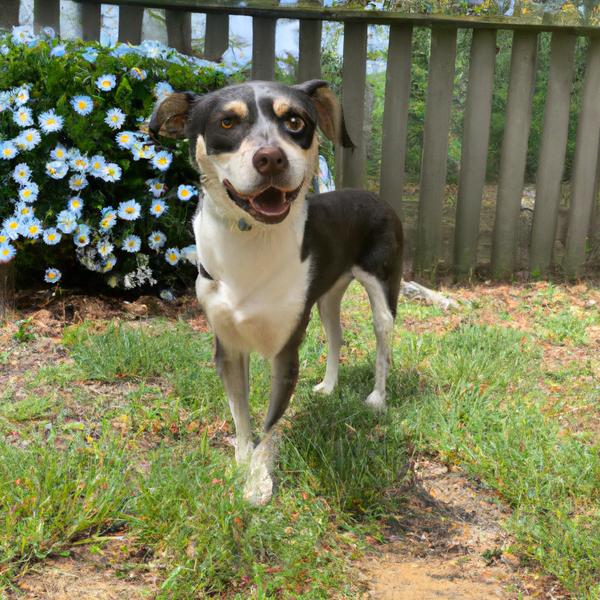Daisy Dog vs. Greater Swiss Mountain: Breed Differences and Similarities
Hypoallergenic
Are Daisy Dogs or Greater Swiss Mountains hypoallergenic, or neither?
While no dogs are truly 100% hypoallergenic, Daisy Dogs are about as close as it gets, making them an ideal pet if you are an allergy sufferer.
Unfortunately, the Greater Swiss Mountain is not hypoallergenic, making it not a good choice for a dog lover who suffers from pet allergies.
Temperament
What are the personalities of Daisy Dog and Greater Swiss Mountain dogs?
Active
Playful
Happy
Alert
Courageous
Intelligent
Friendly
Outgoing
Lively
Gentle
Trainable
Faithful
Instinctual
Alert
Fearless
Protective
Devoted
Good-natured
Selfish
Confidence
Shedding Level
Do Daisy Dogs shed more than Greater Swiss Mountains, or which breed sheds more, Daisy Dogs or Greater Swiss Mountains?
Daisy Dog or Greater Swiss Mountain will shed a negligible amount of hair. Some owners say that they do not shed, but that is not true. But the amount of shedding can be rather light than other dog breeds. If you do not want to deal with the hairs flying around in your home, then this breed is a perfect choice for you.
Watchdog Ability
Which dog breed makes a better watchdog, the Daisy Dog or Greater Swiss Mountain?
Avoid Daisy Dogs as watchdogs - they're not effective.
Choose a Greater Swiss Mountain if you want a top-notch watchdog. This breed takes guarding seriously, and may not require much training, though obedience or guard dog training can improve their skills.
Origin
What is the origin of Daisy Dog and Greater Swiss Mountain dog breeds?
United States
Switzerland
Ancestry
What are the origins of Daisy Dog and Greater Swiss Mountain breeds?
Poodle, Shih-Tzu, Bichon Frise
Roman Mastiff
Date of Birth
When were Daisy Dog and Greater Swiss Mountain breeds first developed?
1950s
Ancient Times
Eye Color Possibilites
What are the eye colors of Daisy Dog and Greater Swiss Mountain dogs?
Brown
Hazel
Brown
Amber
Nose Color Possibilites
What are the natural nose colors of Daisy Dog and Greater Swiss Mountain?
Black
Black
Coat Color Possibilites
What are the natural colors of the coat for Daisy Dog and Greater Swiss Mountain breeds?
White
Red
Silver
Gray
Black
Brown
Blue
Black
Brown
White
Coat Length
What is the typical coat length for Daisy Dog and Greater Swiss Mountain breeds?
Daisy Dogs have medium-length coats.
Greater Swiss Mountains have coats that can be either short or medium in length.
Coat Density
What is the density of the coat of Daisy Dog and Greater Swiss Mountain?
Coat Texture
What is the hair texture of Daisy Dog and Greater Swiss Mountain?
Straight
Litter Size
What is the usual litter size for Daisy Dog and Greater Swiss Mountain?
A Daisy Dog can have a litter of 2-5 puppies on average. However, it's worth noting that the size of the litters can vary greatly. Factors that can influence litter size include the health of the mother, breeding history, and genetics.
A Greater Swiss Mountain can have a litter of 10-12 puppies on average. However, it's worth noting that the size of the litters can vary greatly. Factors that can influence litter size include the health of the mother, breeding history, and genetics.
Adaptability
Daisy Dogs are highly adaptable and versatile, making them excellent companions for families and individuals of all lifestyles.
Greater Swiss Mountains have average adaptability to changes in lifestyle and living environments compared to other breeds.
Health Issues
Between Daisy Dog and Greater Swiss Mountain, which breed is more prone to health problems?
Daisy Dog and Greater Swiss Mountain breeds are generally considered to be healthy. However, like all breeds, they are susceptible to certain health issues and it is important to keep an eye out for them and address them with your veterinarian as needed.
Major Concerns
What are the major health concerns for Daisy Dog and Greater Swiss Mountain breeds?
Patellar Luxation
Epilepsy
Bloat
Eye Problems
Addison's Disease
Gastric Torsion
Hip And Elbow Dysplasia
Osteochondritis Dissecans
Minor Concerns
What minor health issues should be kept in mind when owning Daisy Dog and Greater Swiss Mountain?
Hip Dysplasia
Reverse Sneezing
Bladder Stones and Infections
Distichiasis
Occasional Tests
What occasional tests are recommended for Daisy Dog and Greater Swiss Mountain breeds?
X-Rays
Ultrasound
Electrocardiogram
Urinalysis
Blood Gas Analysis
ACTH Stimulation Test
Blood Tests
Full Physical Examination
Skin Biopsy or Intradermal Tests for specific allergies
Radiography
Eye
Hip
Elbow
X-Rays
Physical Examination
Energy
How do the energy levels of Daisy Dogs and Greater Swiss Mountains compare?
Daisy Dogs are suitable for those with a balanced lifestyle as they have an average energy level.
Greater Swiss Mountains thrive on an active lifestyle due to their high-energy nature.
Social Needs
Daisy Dog vs Greater Swiss Mountain social needs comparison
Daisy Dog has very high social needs and requires regular mental and physical stimulation, a job or purpose, and companionship.
Greater Swiss Mountain has above average social needs and thrives with interaction with humans and other dogs.
Exercise Needed
Daisy Dog vs Greater Swiss Mountain exercise need comparison.
Daisy Dogs need only a small amount of physical activity, ideal for busy or elderly people or those with limited space.
Greater Swiss Mountains need moderate physical activity and are great for families and active individuals.
Sleeping Need
Which of the two sleeps the most/least: Daisy Dog or Greater Swiss Mountain?
Daisy Dogs have moderate energy levels and typical sleep patterns of 12-14 hours per day.
Greater Swiss Mountains are active and require sufficient sleep to stay healthy.
Tendency to Bark
Do Daisy Dogs or Greater Swiss Mountains bark more/less frequently?
Daisy Dogs bark moderately when necessary and may also bark due to certain triggers like fear, alarm, boredom, greeting, separation anxiety and compulsive barking.
Greater Swiss Mountain dogs are generally less vocal than other breeds and only bark when necessary, such as to alert their owner or communicate.
Mouthiness
Mouthiness Comparison: Daisy Dog vs Greater Swiss Mountain?
Roaming urge
Daisy Dog vs Labrador: Running away tendency?
Prey Drive
Daisy Dog or Greater Swiss Mountain - which breed has a higher level of prey drive?
Past times
What are some enjoyable activities and ways to keep Daisy Dog and Greater Swiss Mountain entertained?
Fetch, Walk, Tug-of-war
Eating Snacks, Rough Housing, Play, Nap, Sniffing, Walk, Hike, Training, Tug-of-war, Case
Activity Level
Which breed has higher energy, Daisy Dogs or Greater Swiss Mountains?
Daisy Dogs are low-energy dogs. This breed make a great companion for a relatively inactive person. Daisy Dog dogs require a few short daily walks, and then they're happy snuggling next to you for the rest of the day.
Greater Swiss Mountains are medium-energy dogs and typically enjoy socializing and playing casual or even sustained games of chase with other dogs. They may also have occasional periods of barking or racing around the house.
Tolerance of being left alone
Walks per Week
How many miles should Daisy Dog or Greater Swiss Mountain walk each week?
There's really no limit to how far you walk your dog as long as they're comfortable. For Daisy Dog, it's at least 4 miles / week. Just remember to build distance and stamina gradually over time.
There's really no limit to how far you walk your dog as long as they're comfortable. For Greater Swiss Mountain, it's at least 12 miles / week. Just remember to build distance and stamina gradually over time.
Activity per Day
Do Daisy Dogs or Greater Swiss Mountains require more exercise?
In general most Daisy Dogs usually need at least 30 minutes of exercise daily. This can be spread across the day and include all sorts of high-energy activities, like walking, running and playing.
In general most Greater Swiss Mountains usually need at least 60 minutes of exercise daily. This can be spread across the day and include all sorts of high-energy activities, like walking, running and playing.
Grooming
Which breed is easier to maintain in terms of grooming, Daisy Dogs or Greater Swiss Mountains?
Daisy Dogs have high grooming needs, requiring regular trims and professional grooming assistance to keep their coat healthy.
The Greater Swiss Mountain is a low-maintenance breed that doesn't require much grooming.
Brushing Frequency
What is the recommended brushing frequency for Daisy Dog and Greater Swiss Mountain dogs?
Daisy Dog and Greater Swiss Mountain should be brushed at least once a week. Of course, you can give them more frequent brushes if you find that they are still shedding a lot.
Brushing Tools
What brushing tools are used for Daisy Dogs and Greater Swiss Mountains?
Pin Brush
Comb
Nail Clipper
Pin Brush
Slicker Brush
Nail Clipper
Cups
How much food should be given to Daisy Dog or Greater Swiss Mountain in cups?
For an average 12-17 pound (5 - 8 kg) Daisy Dog feed 2 cups daily. But, keep in mind, the amount you feed is going to be dependent on the quality of the food you are feeding.
For an average 115-140 pound (52 - 64 kg) Greater Swiss Mountain feed 4.5 cups daily. But, keep in mind, the amount you feed is going to be dependent on the quality of the food you are feeding.
Daily Cost
Which breed has a higher daily cost, Daisy Dog or Greater Swiss Mountain?
The average cost of a Daisy Dog is somewhere $1.70 - $2.00 per day.
The average cost of a Greater Swiss Mountain is somewhere $4.20 - $4.90 per day.
Monthly Cost
Which breed has a higher monthly cost, Daisy Dog or Greater Swiss Mountain?
The average per month expenses of a Daisy Dog is between $48 - $63. This makes an average of $576 - $756 per year. It will be on the higher side when the dog is still small because it will need more frequent visits to the vet, shots.
The average per month expenses of a Greater Swiss Mountain is between $126 - $147. This makes an average of $1512 - $1764 per year. It will be on the higher side when the dog is still small because it will need more frequent visits to the vet, shots.
Intelligence
Comparing Intelligence: Daisy Dogs vs Greater Swiss Mountains
Daisy Dogs are average in obedience intelligence but have a high IQ and may cause trouble if left unsupervised.
Greater Swiss Mountain has below average obedience intelligence, but they excel in understanding human emotions.
Sensitivity Level
How do Daisy Dog and Greater Swiss Mountain compare in sensitivity?
These breeds are more sensitive than others and easily overwhelmed by new surroundings and people. Daisy Dog and Greater Swiss Mountain need gentle handling and a calm, stable home environment with positive reinforcement training.
Affection Dependance
Which is the more affectionate dog breed: Daisy Dog vs Greater Swiss Mountain?
Apartment Friendly
Which breed is more apartment-friendly: Daisy Dog or Greater Swiss Mountain?
Daisy Dogs make excellent apartment dogs, being fairly active indoors and not requiring a yard.
Greater Swiss Mountains can do well in apartments with enough exercise and time outside, but a small yard would be ideal.
Child Friendly
Do Daisy Dogs or Greater Swiss Mountains have a friendlier temperament towards children?
Daisy Dog and Greater Swiss Mountain are kid-friendly dogs. They are good with children and excellent dogs with children if they are socialized and trained at a young age.
Senior-friendly
Which dog is more suitable as a pet for the elderly - Daisy Dog or Greater Swiss Mountain?
Cat Friendly
Do Daisy Dog or Greater Swiss Mountain breeds have a better compatibility with cats?
Daisy Dogs are very friendly with cats and make great companions for them.
Greater Swiss Mountains are average in their friendliness toward cats and tend to do well with them, especially if raised together.
Dog Friendly
Which breed is more sociable with other dogs: Daisy Dog or Greater Swiss Mountain?
Daisy Dogs are generally very friendly towards other dogs, with a happy and affectionate temperament.
Greater Swiss Mountains are friendly and active companions, and can be good family pets, though their friendliness towards other dogs may vary.
Pet friendly
How do Daisy Dog or Greater Swiss Mountain dogs interact with other pets?
Stranger Friendly
Which breed is more friendly with strangers: Daisy Dog or Greater Swiss Mountain?
Daisy Dogs are friendly but may bark at strangers, and training is easy due to their intelligence.
Greater Swiss Mountains are averagely friendly around strangers but benefit from early socialisation.
Playfulness
Which breed is more playful between Daisy Dog and Greater Swiss Mountain?
Daisy Dog and Greater Swiss Mountain have an average level of playfulness. Like other dogs, they enjoy playing, but they are not the most playful dog breed.
Trainability
How do the trainability levels of Daisy Dogs and Greater Swiss Mountains compare?
Daisy Dogs are popular for their ease of training and quick learning ability.
Greater Swiss Mountains are usually easy to train but require consistency to fully obey commands.
Compare Daisy Dog with other breeds
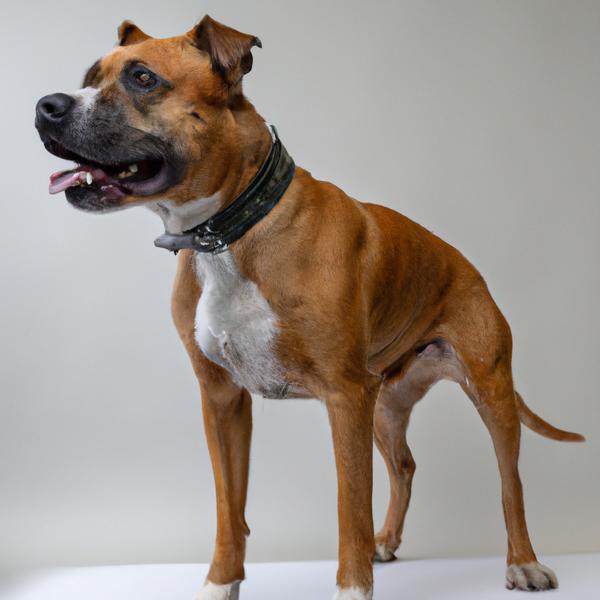
Bullboxer Staff
Daisy Dog vs Bullboxer Staff
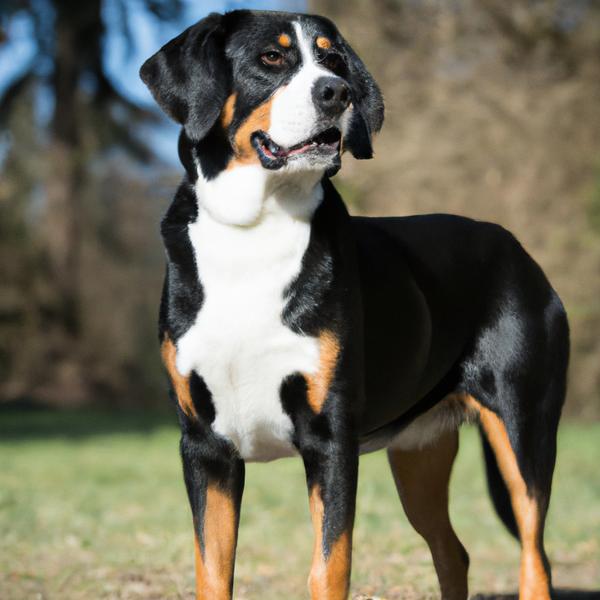
Greater Swiss Mountain
Daisy Dog vs Greater Swiss Mountain
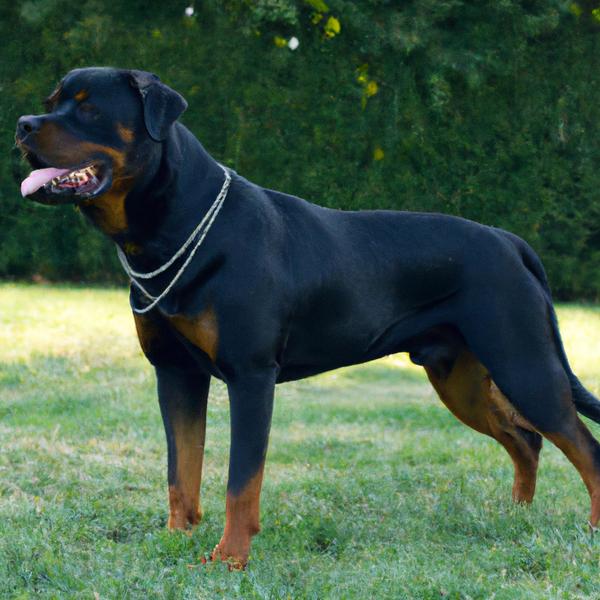
Italian Mastweiler
Daisy Dog vs Italian Mastweiler
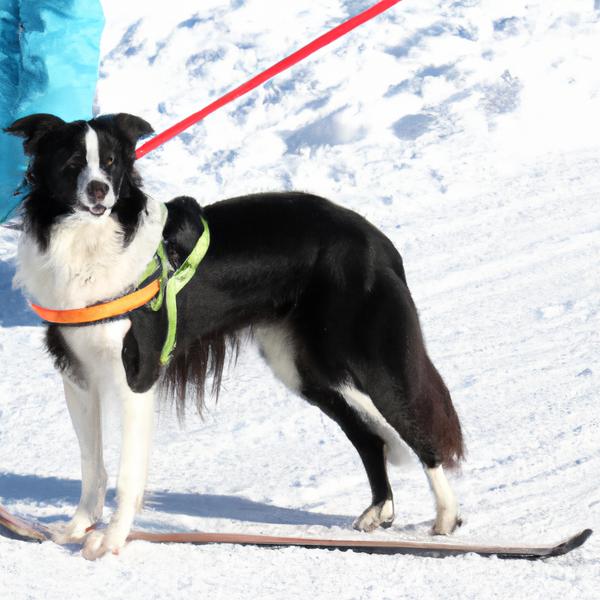
Ski-Collie
Daisy Dog vs Ski-Collie
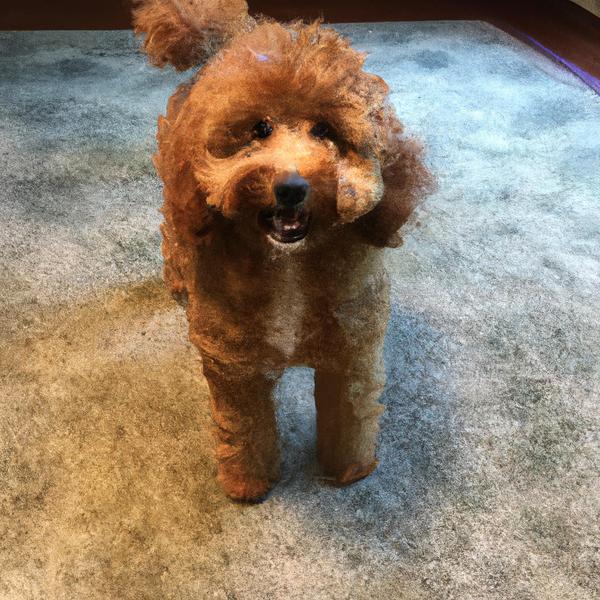
Papi-poo
Daisy Dog vs Papi-poo
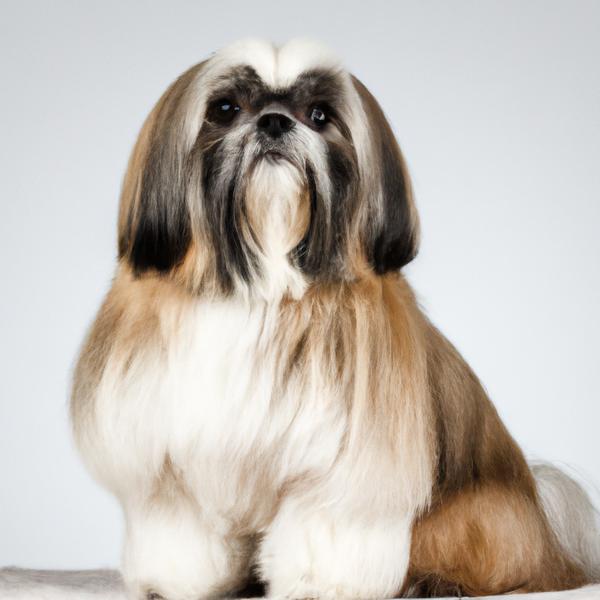
Jatzu
Daisy Dog vs Jatzu
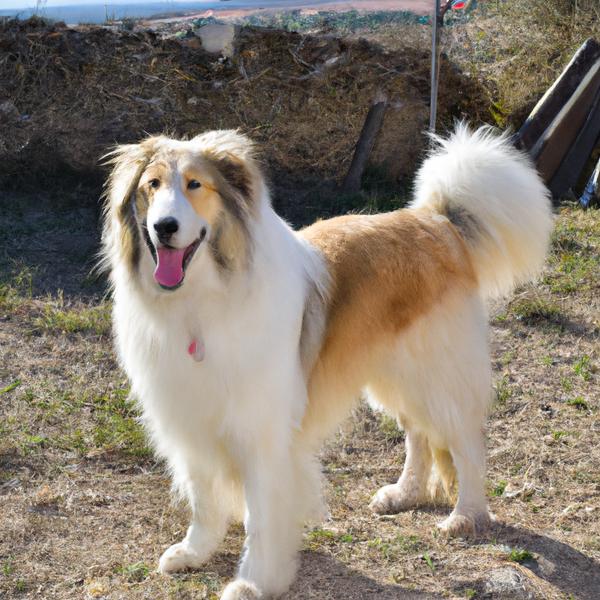
Collie Pyrenees
Daisy Dog vs Collie Pyrenees
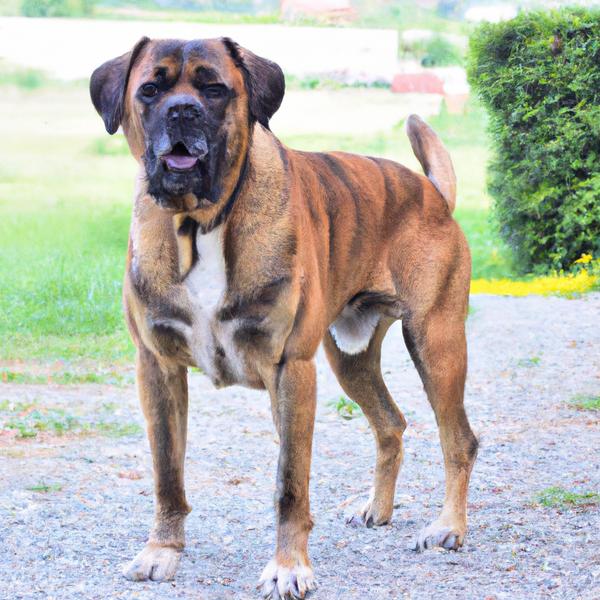
Bologco
Daisy Dog vs Bologco
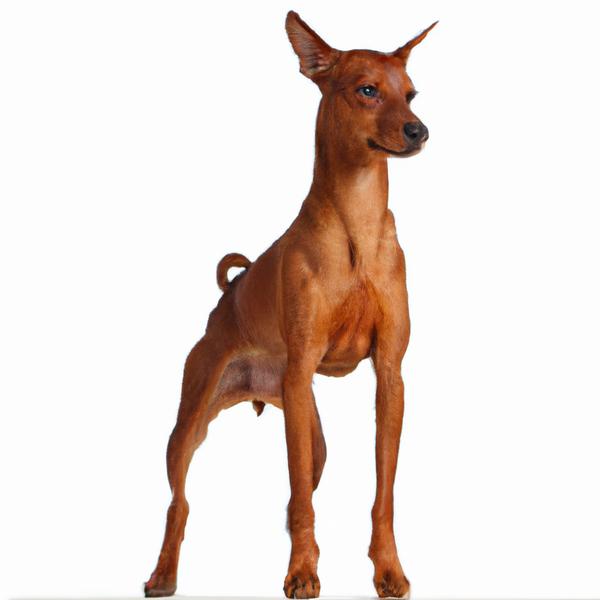
Smooth Fox Pinscher
Daisy Dog vs Smooth Fox Pinscher
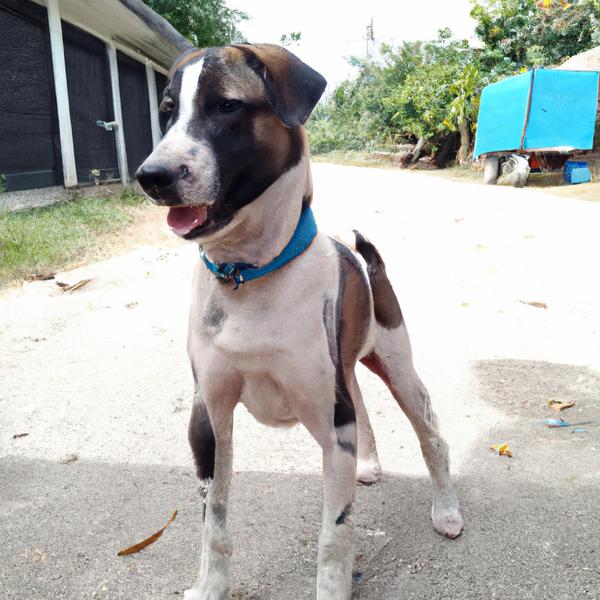
Boxsky
Daisy Dog vs Boxsky
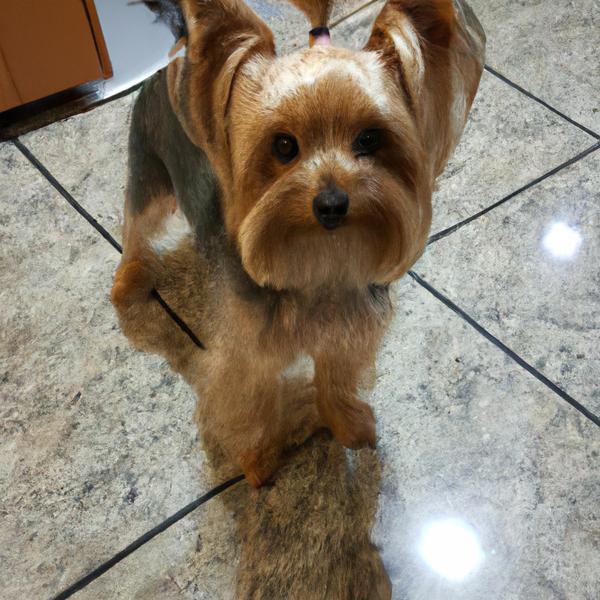
Yorkeltie
Daisy Dog vs Yorkeltie
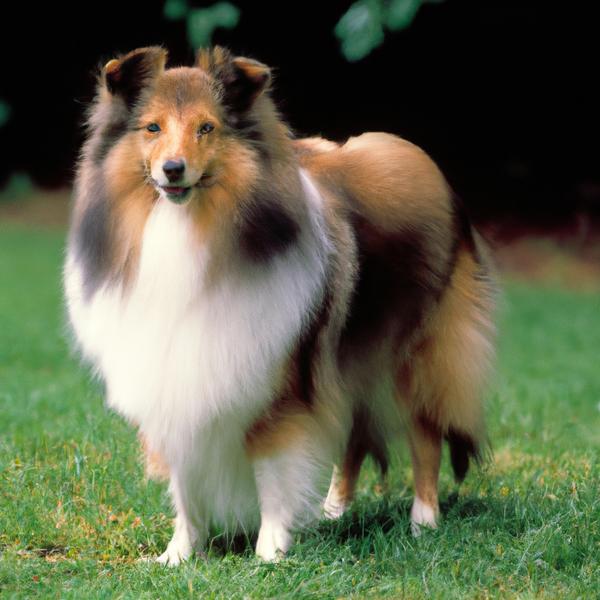
Sheltie-Kee
Daisy Dog vs Sheltie-Kee
